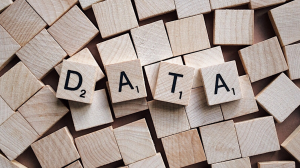What is optimal web scanning?
Data breaches are so common these days that almost every week sees new breaches appear in the headlines. One of the most frustrating aspects of these information leaks is that the average consumer often has no means to stop them. At the same time, individuals also face a constant threat from phishing attackers who use social engineering to collect personal information. Most information such as passwords, ID numbers, addresses, and other information is usually concentrated in a single place: the dark web.
What is the dark web?
The dark web is a system of websites that exist in a multi-layer proxy network, called the darknet. Access to the dark web is not possible through conventional search engines. Instead, users need to use a special browser like Tor (short for "The Onion Router"), which is designed to hide their identity.
Although there are legitimate sites on the dark web, many people still associate it with Silk Road - a famous online marketplace that was shut down by authorities in 2013. Silk Road became famous for selling drugs illegal drugs and weapons, and provided a large amount of stolen data. Since its closure, many other dark web markets have emerged, opening up new opportunities for cybercriminals to sell stolen data.
This means that if your personal information is stolen in a data breach and appears on dark web sites, there is a possibility that someone will purchase it to commit identity fraud. For example, they may use your credit card information to make purchases, borrow money in your name, or make other transactions from your bank account.
How can my information appear on the dark web?
If you've never been exposed to the dark web before, you may be wondering how your personal information appears on the platform. While traditional methods such as pickpocketing and dumpster diving still exist, the explosion of the dark web has opened up a new avenue for criminals to access and trade sensitive data.
A common means for personal information to reach the dark web is through hacking attacks. Hackers look for information such as credit card numbers, CVV codes, social security numbers and other sensitive details that they can sell on the dark web. This information is often collected through unofficial means, such as malware installed on personal computers or through online scams.
Major cyberattacks or data breaches are also sure ways for personal information to appear on the dark web. This data may include names, credit card numbers, social security numbers, and other sensitive personal details. Some hackers even target data service providers - companies that collect and sell personal data for marketing and advertising purposes.
Once they have the desired information, hackers post it to the dark web, where personal information is sold along with 1.4 billion other usernames and passwords, ready for buyers.
What is dark web scanning?
Dark web scanning is an online security tool designed to check the dark web and detect any of your personal information present in the list of stolen data. If your personal information appears on any of the websites on this list, the system will automatically warn you, helping you take the necessary measures to protect yourself from the risk of theft. Identity theft and other malicious activities.
Advantages of dark web scanning
The most important advantage of performing a dark web scan is the ability to warn users that their personal information may be being sold on the dark web. Thereby, users can quickly take measures to protect themselves, such as canceling credit cards or changing passwords.
Another benefit is peace of mind. The peace of mind that comes from knowing that your personal information does not end up on the dark web is especially important in today's increasingly cybercrime landscape.
Disadvantages of dark web scanning
One of the important limitations of conducting dark web scanning is insecurity. Even the most modern tools cannot completely guarantee that your personal information will be securely protected. Some data is transferred through private websites or private transactions, which is why it is important to adopt other security measures such as password management and multi-factor authentication. important to protect your information.
Another downside to dark web scanning is the cost, with some companies charging for the service in excess of $100. Some businesses may even use scare tactics to convince you to buy their services, even if the risk of your personal information being exposed seems low.
How does dark web scanning work?
Using specialized software, dark web scanning has the ability to probe through non-indexed dark web sites, marketplaces and forums to detect any mentions of your personal information. These scans work by applying algorithms to automatically crawl the dark web, looking for your name, email address, social security number and credit card number in a database. stolen, is called a "data dump".
If the software detects any information in your possession, you will immediately receive a warning so you can take measures to protect yourself. This may include changing your password, contacting your bank, or reporting identity theft to government authorities.
Most importantly, note that there are many dark web scanning services online, however, choosing a reputable service is important. While no scan can cover the entire dark web, most focus on the most popular dark web markets, which lack additional privacy protections.
If you feel that a single dark web scan is not enough, you can also consider using a scanning service called dark web monitoring. This service uses information collection databases and continuous scanning technology to look for any signs of your personal information in compromised data, giving you an additional layer of protection and peace of mind. Continuous peace of mind.
Limitations of dark web scanning
1. The scanner cannot scan the entire dark web
Dark web scanners are only capable of probing a small portion of the dark web and may miss some data breaches, especially for lesser-known transactions and sites that go unchecked. Plus, the dark web is always changing, which creates a difficult challenge for scanners to keep up.
Another limitation is that a scan only captures a temporary "picture" of the dark web at a particular time. It may not be possible to detect any subsequent violations unless a new scan is performed. Therefore, relying on scanners alone may not ensure comprehensive protection against data breaches.
2. If the scanner returns results, your data has been stolen
During the process of scanning the dark web to check your personal information, there is a possibility that your data has been stolen. Additionally, although dark web scanning can alert you to the presence of your personal information on the dark web, it cannot actually remove that information.
However, even if the message from the scan is non-erasing, it's better to know that your data has been compromised than to be in the dark. Armed with this information, you can take immediate actions to protect yourself, like changing your login information or freezing your credit.
Is scanning the dark web worth it?
Deciding whether or not to use a dark web scanning service depends on your personal circumstances and level of risk. Those in groups at high risk of identity theft, such as those with high incomes, may consider scanning the dark web as a sound investment, while those in lower risk groups It can be seen that this is not a necessary priority.
Most importantly, when approaching any dark web scraping service, whether free or subscription-based, you should maintain a healthy skepticism. Remember that the best way to protect yourself is to remain vigilant about online security and take active steps to keep your personal information safe.










